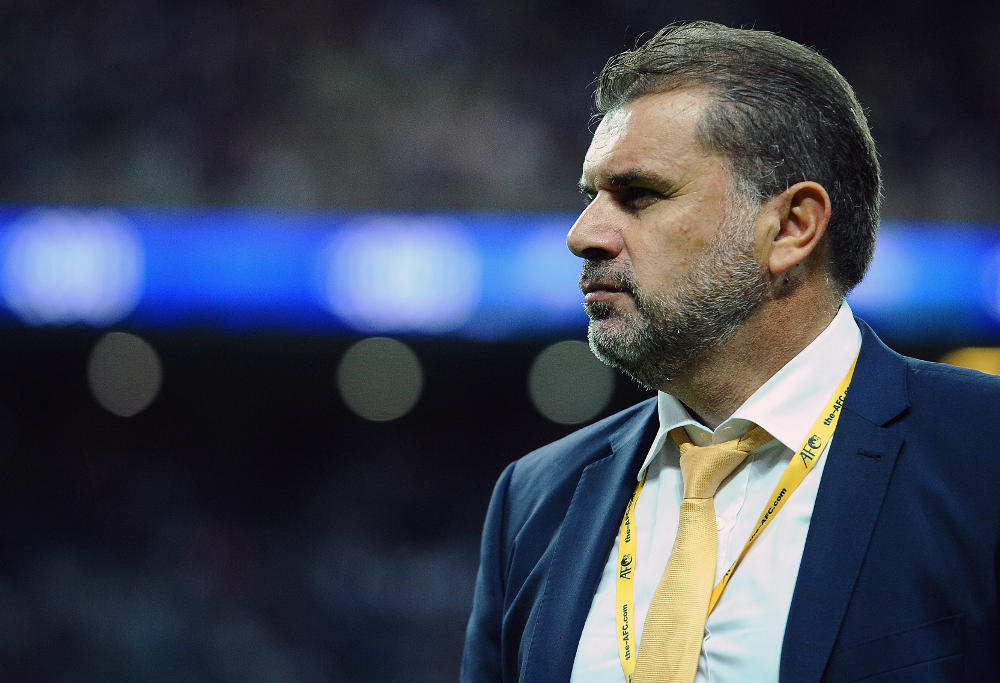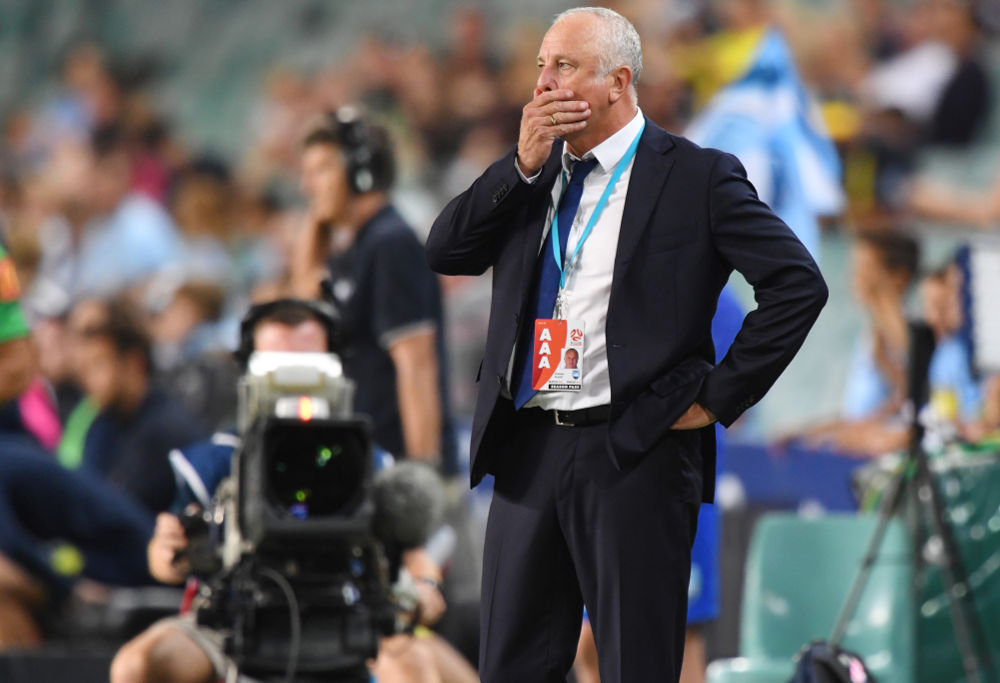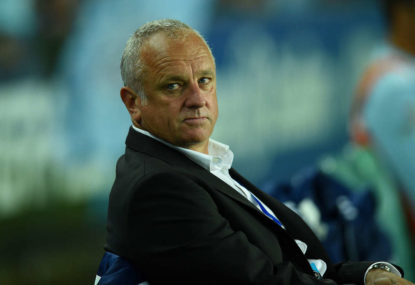I’ll never forget my feelings when Ange Postecoglou was appointed as manager of the Socceroos.
Watching him develop as a player, leader and manager in Australia, all the way from his early days with the South Melbourne Football Club to his eventual appointment as national coach, engendered a sense of pride and satisfaction that could best be described as nationalism.
The cynics would have interpreted my mood as evidence of the chip on the shoulder of Australian football fans. They would have cited the continued obsession in Australian football; proving itself to the broader community.
If that was me, I’ll cop it, in full knowledge that my thoughts around the announcement were connected to pride and pleasure rather than bitterness, one-up-man-ship and giving it to the sceptics.
After NSL success with South Melbourne as a player and manager, masterminding the astonishing run of the all-conquering Brisbane Roar and more silverware with Melbourne Victory, Postecoglou became something of a managerial icon in Australia.
Writers from social and sporting quarters were all talking about the Greek migrant who had embraced a new life in Australia, with football as his means to assimilate with his new country and connect with his traditionally minded father.
His wonderful autobiography, Changing the Game; Football in Australia Through My Eyes, speaks of the challenges and opportunities he encountered and is an inspirational text for all Australians, regardless of sporting or political allegiances.
Postecoglou’s pre-tournament comments at the 2015 Asian Cup, reflected the intense media pressure rightfully present for such a big event and expressed a plain and simple confidence that underlined his entire coaching career.
I wrote about it at the time in an early column for The Roar and was mystified by his words. Quite succinctly he said of the media, “As long as they stand by their opinion when the story unfolds”.
It was an astonishingly confident and almost arrogant message to the press, among whom there would have been many well satisfied with failure, such is the ignorance and distain towards the game in this country.

(AAP Image/Matt Roberts)
As Postecoglou and the players walked the ground after the glory of the final against South Korea, Australian football took another step forward, I was so proud that an Australian had been at the helm.
Don’t get me wrong, the multicultural diversity of this country is one of its most essential and valuable ingredients; my little 14 and 10-year-old Lebanese-Australian kids are testament to that.
However, seeing the Wallabies or the Australian cricket team coached by foreigners always irked me. Surely we had an Australian with a better knowledge and understanding of the local scene and players?
In the case of rugby perhaps not, cricket however, has no excuse.
In football’s case, we rarely did.
Through the Les Scheinflug, Eddie Thomson and Frank Arok years, irrespective of where those wonderful contributors to Australian football stood in terms of citizenship, they always felt like foreigners helping us out.
Terry Venables and Guus Hiddink, were hired guns, employed with a sole purpose in mind.
Many longed for the arrival of an Australian, not only professionally qualified and capable of taking over the reins but someone who could be symbolic; a metaphor for the changing face of the game in this country.
Postecoglou became that man and FFA representatives gate-crashed every one of his successful dressing rooms, doused in champagne, as World Cup qualification and Asian Cup success whet the public’s appetite for more.
[latest_videos_strip category=“football” name=“Football”]
The governing body now face a compelling challenge in determining whether to back the best Australian candidate against the impressive resumes of an apparently now small group of foreigners interested in coaching our Socceroos.
The ‘shortlist’ compiled by the FFA in preparation for their announcement in mid-February is a mystery to most and perhaps the bookies odds tell us more than we could ever know, however, there is no doubt that the nationality of the Sydney FC mentor is a factor.
Two schools of thought are clearly on the minds of the powers at be.
One line of thinking correctly suggests that the best candidate should be offered the position. Yet what exactly is the metric for the best candidate.
A World Cup campaign in Russia where the Socceroos compete well, threaten in all their group matches and score goals would be a good achievement and the second phase would be admirable.
However, does the appointment of Arnold offer something more to the bigger picture in Australian football?
This logically leads to the second school of thought and the simple question, ‘does Graham Arnold get a leg up in this interview process because he is an Australian?’
Much will be made of his knowledge of the local scene, the Australian players and his experience with the Socceroos in years passed. As disappointing as some of that history was, he has proven himself as a man more than willing to learn.

(AAP Image/David Moir)
His development as a manager and more importantly, a recruiter, has been clear and deserves merit yet does he offer something to the position of national coach that other foreigners might not be able to bring?
The FFA will need to weigh up these factors and decide whether another A-League Manager could in fact be world class. Sydney FC’s style should come into discussion, as should Arnold’s analysis of his own limitations and the areas in which he can improve.
The answer is undoubtedly blowing in a Dylan-esque wind and the question will be much discussed over the next fortnight. Retrospect will provide the clearest of twenty/twenty vision.
All I know is that the decision is immensely important, difficult and fraught with danger.
Let’s hope they get it right.































































































